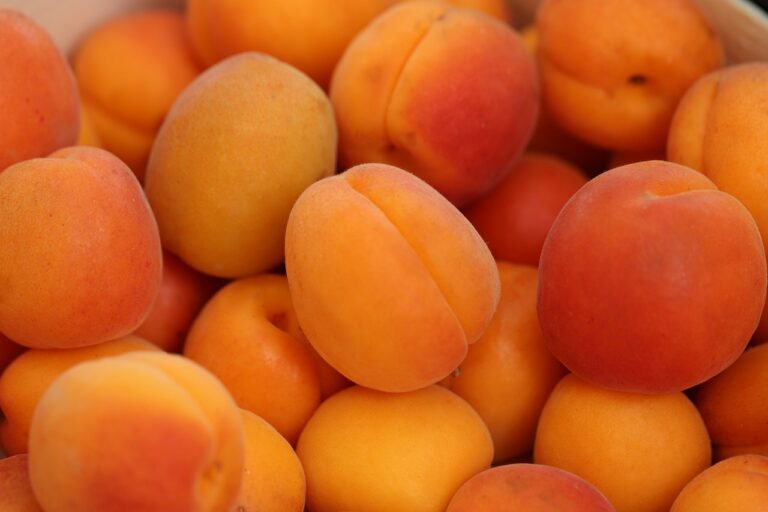The Future of Edible Insects as a Sustainable Protein Source
Insects are being increasingly recognized as a valuable and sustainable protein source for human consumption. With the growing global population and the need for alternative protein sources, insects offer a high nutritional value. They are rich in essential amino acids, vitamins, and minerals, making them a nutritious addition to diets. Additionally, insects have a high feed conversion rate, meaning they require significantly less resources such as water and land compared to traditional livestock like cattle or pigs.
Furthermore, edible insects have a lower environmental impact compared to conventional livestock farming. The production of insects emits fewer greenhouse gases and requires less water and feed. Insects can also be farmed on organic waste, contributing to waste reduction and promoting circular economy practices. Embracing insects as a protein source can help address food security and sustainability challenges in a world facing resource constraints and climate change.
Challenges in Normalizing Insect Consumption
While edible insects offer a sustainable and nutritious protein source, one of the primary challenges in normalizing their consumption lies in overcoming cultural biases and taboos surrounding insects as food. In many Western societies, insects are often associated with dirtiness or pests rather than as a viable source of nutrition, making it difficult to shift attitudes towards accepting them as a regular part of the diet.
Additionally, the lack of familiarity with insect-based dishes and the perceived “ick” factor present obstacles in promoting insect consumption. Many individuals are hesitant to try insect-based foods due to preconceived notions of them being unappetizing or repulsive, preventing widespread acceptance of insects as a mainstream protein source. Overcoming these psychological barriers is crucial in moving towards a more sustainable and inclusive food system.
• Lack of familiarity with insect-based dishes
• Perceived “ick” factor
• Preconceived notions of insects being unappetizing or repulsive
To address these challenges, education and awareness campaigns are essential in normalizing insect consumption. By providing information on the nutritional benefits of eating insects, highlighting their environmental sustainability, and showcasing delicious insect-based recipes, individuals can be more open to trying this alternative protein source. Encouraging culinary innovation and creativity in incorporating insects into familiar dishes can also help change perceptions and make entomophagy more appealing to a wider audience.
• Education and awareness campaigns
• Highlighting nutritional benefits
• Showcasing delicious insect-based recipes
• Encouraging culinary innovation
Furthermore, regulatory frameworks need to be developed to ensure the safety and quality of edible insects for human consumption. Establishing standards for farming practices, processing methods, labeling requirements, and food safety protocols is crucial in building trust among consumers. Collaboration between government agencies, researchers, industry stakeholders, and consumers is essential in creating a robust regulatory environment that supports the sustainable growth of the edible insect market.
• Developing regulatory frameworks
• Establishing standards for farming practices
• Collaboration between government agencies, researchers, industry stakeholders
• Building trust among consumers through food safety protocols
In conclusion,
normalizing insect consumption requires a multi-faceted approach that addresses cultural biases,
psychological barriers,
educational gaps,
and regulatory considerations.
By working together to overcome these challenges,
we can create a more sustainable food system that embraces the potential of insects as an environmentally friendly protein source.
Environmental Impact of Insect Farming
Insect farming has gained attention as a sustainable source of protein due to its relatively low environmental footprint compared to traditional livestock farming. One of the key advantages of insect farming is its high feed conversion efficiency, requiring significantly less water, land, and feed to produce the same amount of protein. This efficiency can help reduce greenhouse gas emissions and alleviate pressure on natural resources.
Additionally, insect farming has the potential to contribute to waste reduction and promote circular economy practices. Insects can be reared on organic waste, converting it into valuable protein sources. By diverting organic waste from landfills, insect farming can help minimize methane emissions and reduce the environmental impact of waste disposal.
What are the benefits of using edible insects as a protein source?
Edible insects are a sustainable protein source that requires significantly less resources such as water, land, and feed to produce compared to traditional livestock. They also produce fewer greenhouse gas emissions and have a smaller ecological footprint.
What are some challenges in normalizing insect consumption?
Some challenges in normalizing insect consumption include cultural barriers, perceptions of insects as unclean or gross, and lack of infrastructure for insect farming and processing. Education and awareness campaigns are necessary to overcome these challenges.
How does insect farming impact the environment?
Insect farming has a lower environmental impact compared to traditional livestock farming. It requires less water, land, and feed to produce the same amount of protein. In addition, insects produce fewer greenhouse gas emissions and generate less waste compared to livestock.
Can insect farming help reduce deforestation?
Yes, insect farming can help reduce deforestation as it requires less land to produce protein compared to traditional livestock farming. By switching to insect farming as a protein source, we can reduce the need for clearing forests for agriculture and animal grazing.
Are there any regulations in place for insect farming to ensure environmental sustainability?
Currently, regulations for insect farming vary by country and region. However, there is a growing interest in developing standards and guidelines for sustainable insect farming practices to minimize environmental impact and ensure the ethical treatment of insects.







